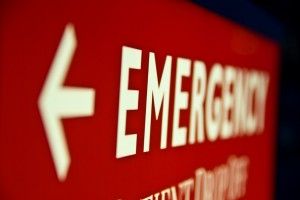
What is Priapism?
Priapism is a medical condition in which the penis becomes continuously erect, and usually painful, for a prolonged period of a few hours or more. It is a medical emergency, which if untreated can lead to permanent damage to the penis. A single episode can affect the future capacity to achieve erections.
During an episode of priapism the shaft of the penis will be hard and sometimes painful. The head of the penis may remain soft.
Why does it happen?
At times of sexual stimulation arteries supplying blood to the penis open up. This increases the amount and pressure of the blood in the penis producing stiffness. If blood becomes trapped in the engorged hard penis and does not flow away normally at the end of stimulation, the penis will remain hard and over a few hours be liable to damage.
What causes priapism?
Any condition which causes a build up of blood and pressure or prevents its release will result in Priapism.
Physical causes
It is more likely to occur in men who have an increased tendency for the blood to thicken and become sticky. This can occur in the inherited condition, such as sickle cell disease, and also in acquired conditions such as lymphoma and myeloma.
Spinal injury, congenital or acquired, can affect the nervous system of the penis and alter the normal blood flow.
Injury to the base of the penis and area around the anus, or growths such as cancer of the bladder and prostate, can affect blood flow.
Prescription medicines
Some prescription medicines are associated with increased risk of priapism, although the risk remains low. Sildenafil (Viagra), tadalafil (Cialis), avanafil (Spedra) and vardenafil (Levitra) have all been identified as possible causes, as have topical treatments for erectile dysfunction containing alprostadil, such as Vitaros cream. It is worth repeating; the risk is low.
Other treatments which have a potential to cause priapism include, antidepressants such as Prozac, and anticoagulants such as warfarin and heparin, and blood pressure medicines know medically as calcium channel blockers.
Recreational drugs
Priapism is associated with use of the following recreational drugs, particularly when misused with drugs taken to treat erectile dysfunction.
- Cocaine.
- Ecstasy.
- Methamphetamine (crystal meth).
- Cannabis.
The combination and the associated failure to seek treatment has occasionally led to permanent damage in a few young men. Men who have taken recreational drugs and/or alcohol may fail to seek treatment and ignore the pain.
Treatment
There is an urgent need, within a few hours, to drain away the accumulated blood and reduce the pressure. This is best undertaken in a hospital A+E or emergency department. Blood can be drained directly through large bore needles inserted into the erectile tissue on either side of the shaft of the penis. Alternatively dilute phenylephrine, which mimics the action of epinephrine (adrenaline), can be injected into the penis to reduce inward and increase outward blood flow. Side effects such as rapid heart rate and increased blood pressure must be monitored during administration.
If other treatments fail, surgical procedures can be undertaken to relieve the pressure. This is usually the treatment of last-resort.
NHS recommendations
- Try to go for a pee.
- Have a warm bath or shower.
- Drink lots of water.
- Go for a gentle walk.
- Try exercises, such as squats or running on the spot.
- Take painkillers like paracetamol if you need to.
- Do not apply ice packs or cold water to your penis – this can make things worse.
- Do not have sex or masturbate – it will not make your erection go away.
- Do not drink alcohol.
- Do not smoke.
Further reading: NHS – Priapism
Key points
Priapism is rare in otherwise healthy males. It is a medical emergency requiring rapid medical attention, within hours, to avoid permanent damage. Some men with pre-existing medical conditions are at increased risk.
Some drugs, most notably those used to treat erectile dysfunction, predispose to the condition, particularly if taken with recreational drugs.
Treatment is available, although not without its difficulties and complications.



